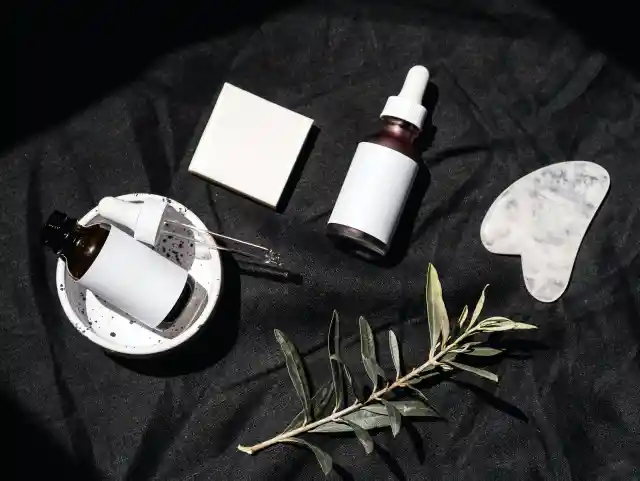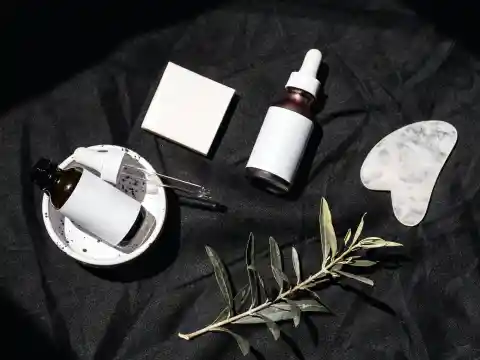Serums have now become an essential part of the best skincare routines. However, using serums in a skincare routine can be one of the more perplexing steps. With so many products available, choosing the right one for your individual skincare and cosmetic requirements can be challenging and occasionally even overwhelming. But don't worry we are here to make it simple for you.


We'll go over all the information you need to know about serums, including what they are, how they can help your skin, and when it's best to use them.
What are serums?
Facial serums are skincare items with concentrated amounts of active components including peptides, antioxidants, and vitamins. They are made to enter the skin thoroughly in order to provide specific advantages including hydration, anti-aging, brightening, and acne treatment.
The science behind face serums is contained in their formulation and delivery technique. Serums often have a thin, liquid consistency that enables for deeper skin penetration.
This is so that the serum's smaller molecules can more easily penetrate the stratum corneum, the skin's outermost layer, and reach the deeper levels, where they can exert their positive effects.
Several serums incorporate unique delivery methods to boost absorption and efficacy. Some serums contain nanotechnology, which allows the active ingredients to penetrate the skin deeper and deliver their benefits more efficiently.
Serum active ingredients are chosen for their distinct properties and ability to address a variety of skin concerns.Several serums incorporate unique delivery methods to boost absorption and efficacy.
Some serums contain nanotechnology, which allows the active ingredients to penetrate the skin deeper and deliver their benefits more efficiently. Serum active ingredients are chosen for their distinct properties and ability to address a variety of skin concerns.
Active ingredients
It's vital to choose a serum formula that caters to your unique demands. Serums are meant to target certain skin issues, and they often have a lightweight mix with concentrated active ingredients that are intended to permeate the skin more thoroughly than a moisturizer.
Knowing which skin issue you want to address is crucial when picking the best serum for you. The most often suggested serums by dermatologists, whatever your problem, are listed below.
Retinol
Retinol is a vitamin A derivative that promotes cell turnover, or exfoliation. Because of its exfoliating qualities, it is used for acne and aged skin and helps lessen wrinkle depth, acne, and other symptoms of aging.
A word of caution: this is active and shouldn't be used daily. Be sure to meticulously apply your SPF because failing to do so might lead to negative responses when using products that include retinol.
Vitamic C
This essential vitamin is very important for maintaining healthy skin. It is a potent antioxidant that shields the skin from harmful free radicals brought on by environmental causes and stress. It stimulates collagen formation, assists in cellular regeneration, improves wound healing, and fights inflammation.
This results in skin that is more elastic and resilient and has less wrinkles and fine lines. Vitamin C lightens skin tone and lessens the visibility of age spots, acne scars, and sun damage. This vitamin works hard to restore, safeguard, and revive your general complexion while battling age indications.
Hyaluronic acid
Your skin contains hyaluronic acid naturally, accounting for 50% of your body's entire supply. Because of its capacity to bind with water and hold up to 1000 times its own weight in water, it is one of the most potent skin hydration.
Because of its moisturizing qualities, hyaluronic acid is a popular component in serums. As we age, the hyaluronic acid in our skin gradually decreases. Hyaluronic acid may be applied topically to the skin to help keep it hydrated, but for optimal skin hydration, it should be coupled with other substances.
Alpha-hydroxy acids
Natural acids called AHAs originates from citrus fruits including oranges, lemons, and grapefruits. They help your skin in a variety of ways. These acids are chemical exfoliators that maintain a bright, radiant complexion by eliminating the accumulation of dead and damaged skin cells.
They also prevent acne outbreaks by keeping your pores from clogging. They remove dead skin cells and other debris from the skin through exfoliation, which improves the effectiveness and efficiency of your face products. AHAs lighten and brighten the skin by removing hyperpigmentation and discolouration brought on by sun damage, age spots, and scarring.
Ceramides
In its normal state, ceramides make up more than 50% of your skin. Ceramides are a kind of lipid (fat) molecule that is made up of sphingosine and a fatty acid.
The top layers of the skin contain large concentrations of ceramides. Ceramide is often listed as Ceramide AP, EOP, NG, NP, or NS on the ingredients label.
Peptides
Proteins are made up of chains of amino acids called peptides, which maintain the structure of the skin. They're excellent for giving loose skin support. Peptides act as messengers for the growth of new skin when given topically to the skin.
Peptides are made up of molecules that may enter the skin at great depths. One of the most well-known peptides praised for its ability to stimulate collagen is matrixyl.
Salicylic acid
This component, which is derived organically from plants and is likewise one molecule away from aspirin, is drawn to oil and absorbs a lot of it, reducing outbreak. Oil stores the food that the bacteria that cause acne need to survive.
By removing that food, the bacteria are less likely to flourish. This is excellent for breakouts brought on by oil production, however, it may aggravate some skin types. Do not take this if you are allergic to aspirin.
How and when to use?
Using skincare products in the right order is important. What happens next is determined by the time of day and the items used. Your serum's active components will determine whether you use it in the morning or at night.
Vitamin C, which assists in protecting skin from UV damage, is often used in daytime serums. Exfoliants like AHAs are typically found in nighttime serums. You should only use this component at night since it makes your skin more sensitive to UV rays.
Moreover, you should use sunscreen with at least SPF 30 throughout the day, which you should be doing regardless of whether you use a serum.
We suggest using face skincare products as follows:
· Start by washing your face. Using your hands, massage a cleanser into your skin that is suitable for your skin type. Rinse with warm water and use a fresh towel to pat your skin dry.
· Apply the serum in a pea-sized quantity to your face and neck gently. Give it some time to absorb; as serums absorb quickly, this shouldn't take long.
· Use a moisturizer to lock in moisture and preserve your skin.
You should always start using a new serum cautiously at first. Depending on the components, you may eventually use your serum every day or maybe once a week.